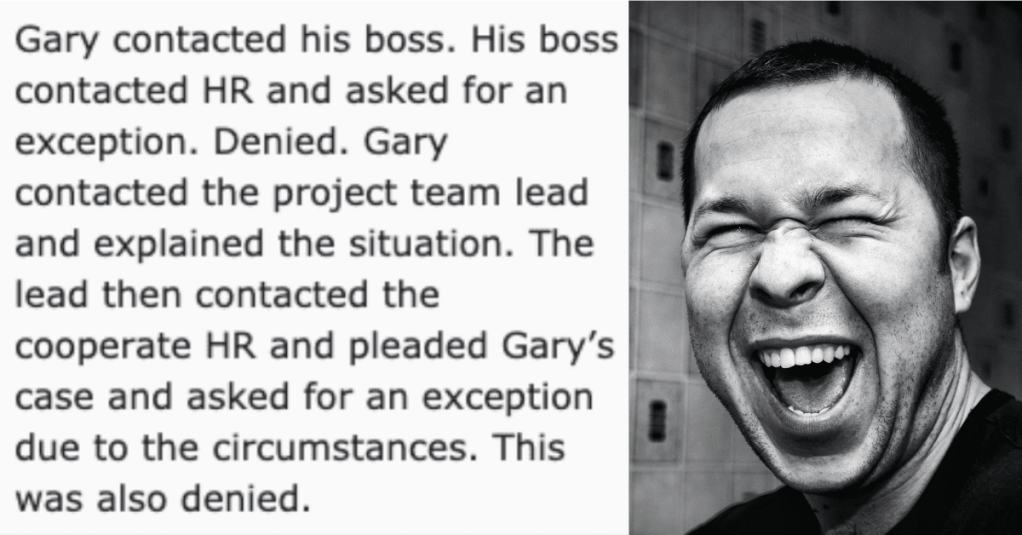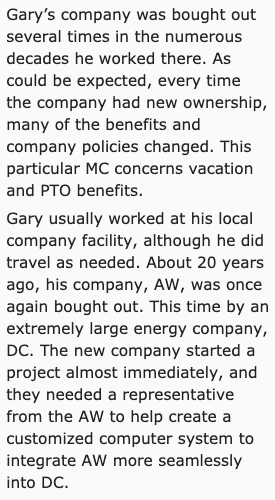Sometimes it can seem like no one really thought some corporate policies out before they implemented them, and the whole “use it or lose it” school of thought on vacation days feels like one of those things.
So does, incidentally, the idea that sick days can’t be “cashed in” to retire a few weeks or months early. If you force people to take their sick days or lose them at the end of their tenure, what exactly do employers think is going to happen?
Personally, I love this r/malicious compliance story quite a lot, so I hop you do, too.
A man’s daughter who clearly loved him tons, and has heard this story often, tells us the tale.

Image Credit: Reddit
The backstory is that he was a dedicated, lifelong employee of an oil and gas company, working his entire career as a valued electrical engineer.
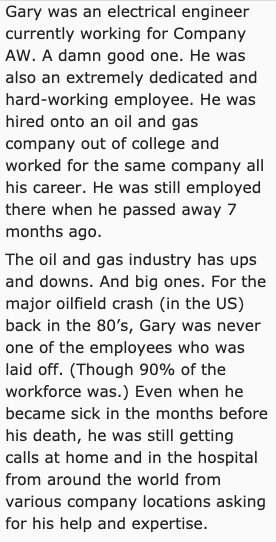
Image Credit: Reddit
During one of many buyouts, the new bosses asked Gary to travel to D.C. in order to help integrate their new systems.
He changed around some of his vacation plans to accommodate the new position.
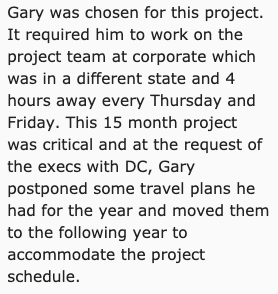
Image Credit: Reddit
Gary never complained about many of the inconveniences this new arrangement caused him.
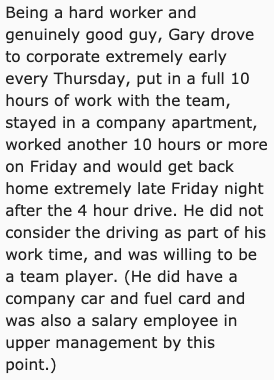
Image Credit: Reddit
A few months into the new company’s tenure, they decided to change the vacation policy.
You could no longer roll over 2 weeks of vacation as was previously allowed, which would have caused Gary to have to cancel those plans he’d put off to make this whole transition work.
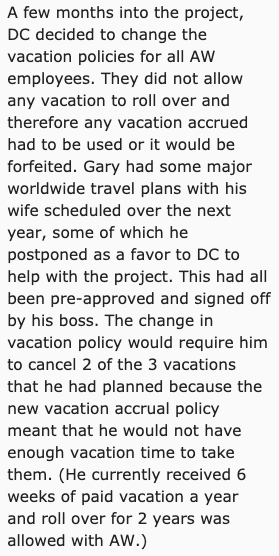
Image Credit: Reddit
He tried to go through the right channels to get an exception, but corporate was having none of it.
So.
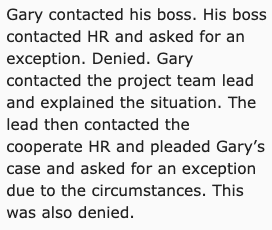
Image Credit: Reddit
Gary found a way around it by basically arranging for 2 day work weeks for the remainder of the year.
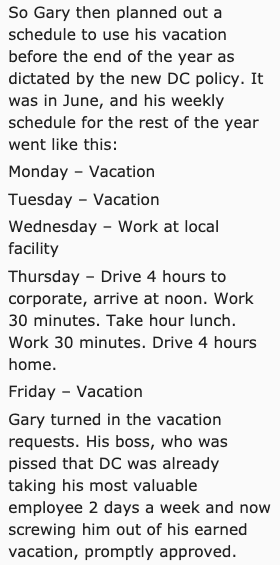
Image Credit: Reddit
Things started to go to hell fairly quickly, and by the end of week 2, corporate was ready to talk.
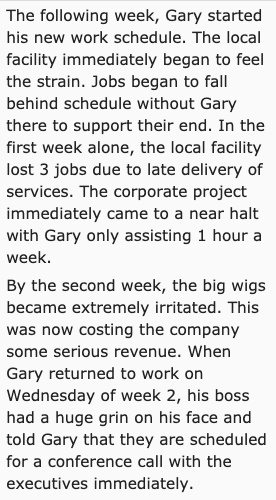
Image Credit: Reddit
In the end, Gary got what he deserved, and was able to keep his vacation time to spend time abroad with his wife as he’d planned.
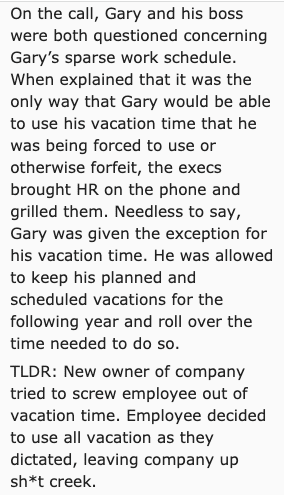
Image Credit: Reddit
If you’ve got the leverage and support from your immediate superiors, there’s no need to take corporate “policy” changes lying down, people.
Lesson learned.

